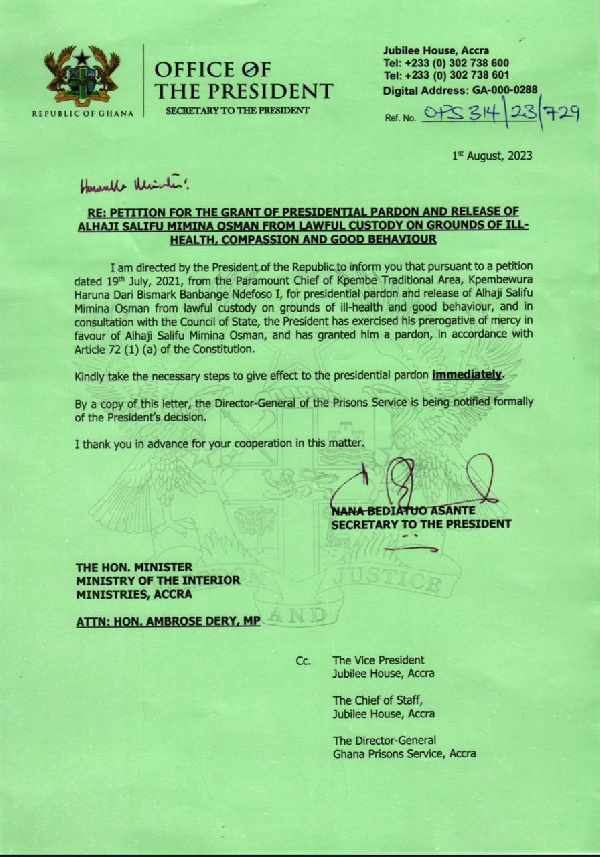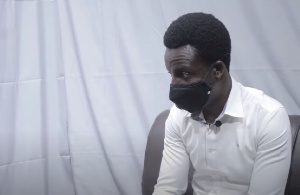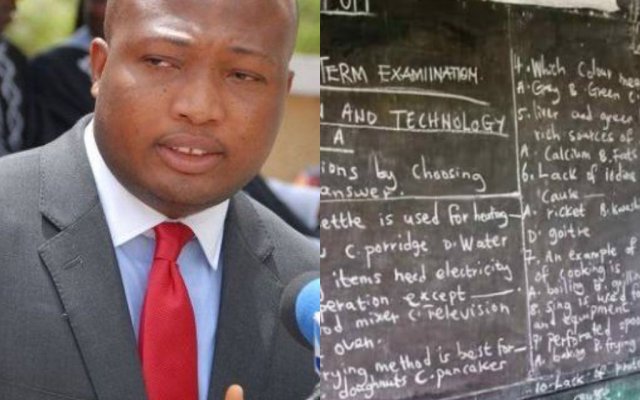Ghana Police Made Me Walk From Kwahu Mpraeso to Nkawkaw in Handcuffs – Atta Ayi’s mechanic

Accra, Ghana – June 2025: After more than 20 years behind bars, Yaw Asante Agyekum, a motorbike mechanic, is finally a free man. His conviction was overturned by the Court of Appeal on Wednesday, June 5, 2025, bringing an end to one of the most heartbreaking cases of mistaken identity in Ghana’s justice system.
Yaw, once known simply as “Akpo” in his community, was wrongfully arrested in 2002 and accused of being part of the criminal network of Ghana’s most notorious armed robber at the time — Atta Ayi. What followed was a harrowing ordeal of humiliation, injustice, and nearly a lifetime lost to a crime he never committed.
A Simple Visit Turned into a Nightmare
In a recent emotional interview on The Nana Aba Series on YouTube, Yaw recounted how a routine visit to his mother in Kwahu Mpraeso turned into a life-altering event. The year was 2002. Yaw had traveled from Accra to the Eastern Region to spend time with his family and attend church.
While seated in church, two plainclothes police officers approached him. They asked whether he was the motorbike mechanic known as “Akpo” who operated at Korle Wokon in Accra. Trying to answer their questions calmly, Yaw reached into his pocket to pull out his Sony Ericsson phone, but was immediately arrested before he could say anything further.
“They said they heard I was good at my work. I didn’t know why that mattered. Before I knew it, they had arrested me,” Yaw recounted.
Public Humiliation and False Charges
What happened next was perhaps even more humiliating. Yaw said the officers made him walk in handcuffs from Mpraeso to Nkawkaw—a distance of nearly 20 kilometers—while their patrol vehicle followed slowly behind him.
“They played reggae music from a Tundra as I walked the whole way. It was humiliating. People were staring. I hadn’t done anything wrong.”
After reaching Nkawkaw, Yaw was locked up in a cell while the officers proceeded to Kumasi, leaving him with no information, no lawyer, and no hope.
Later, the police arrested his aunt and sister, bringing them to the Women and Juvenile Unit (WAJU), now known as DOVVSU, under the suspicion that they might also be involved in the alleged criminal network.
Framed with Fake Evidence
Yaw’s story took an even darker turn when the police staged photos of him with guns and herbal charms — attempting to make him appear as a ritualist or criminal.
“I’ve never touched a gun in my life,” he said. “They put weapons and charms in front of me, dressed me up for the pictures, and sent them out as evidence. When my family saw those pictures, they were terrified.”
He insists the only thing he had on him the day he was arrested was his motor key.
How the Wrongful Conviction Happened
The key piece of “evidence” that led to his conviction came from a man named Nana Yaw, another associate of Atta Ayi, who had employed Yaw to fix his motorbikes. When Nana Yaw was arrested, he allegedly implicated Yaw, possibly in an attempt to reduce his own sentence.
Despite Yaw’s consistent denial and lack of any direct evidence connecting him to any crimes, he was remanded and eventually jailed.
To make matters worse, when Atta Ayi was finally arrested and brought into custody, Yaw hoped he would clear his name. Instead, Atta Ayi reportedly refused to speak to him, perhaps believing he had been betrayed.
Yaw spent over two decades in prison, losing the prime years of his life to a broken system.
Freedom at Last: A Court Overturns the Conviction
On June 5, 2025, a three-member panel at the Court of Appeal unanimously ruled that the case against Yaw was based entirely on circumstantial evidence that was “inadequate and unjust.” The court quashed his conviction and ordered his immediate release.
The ruling marks a significant victory for human rights advocates and legal experts who have long called for reform in Ghana’s criminal justice system.
Calls for Justice Reform and Compensation
Yaw’s case has reignited national conversations on the dangers of wrongful arrests, mistaken identity, and police misconduct. Legal experts and civil society groups are demanding that Yaw be fully compensated for his wrongful imprisonment and loss of livelihood.
The story has also raised broader concerns about the ease with which innocent citizens can be swept up in criminal investigations without proper verification, legal representation, or access to justice.
“There must be accountability for what happened to Yaw,” said a legal analyst on JoyNews. “He deserves compensation, and Ghana must ensure this never happens again.”
For Yaw Asante Agyekum, freedom is both a relief and a burden. While he is happy to finally be released, the psychological and emotional scars of his ordeal remain. He now hopes to rebuild his life, restore his reputation, and advocate for justice on behalf of others who may be wrongfully imprisoned.
“They took away my life, my dignity, and my name. But I’m free now. And I thank God,” Yaw said, holding back tears.
Watch the video below:
Source: Thepressradio.com





